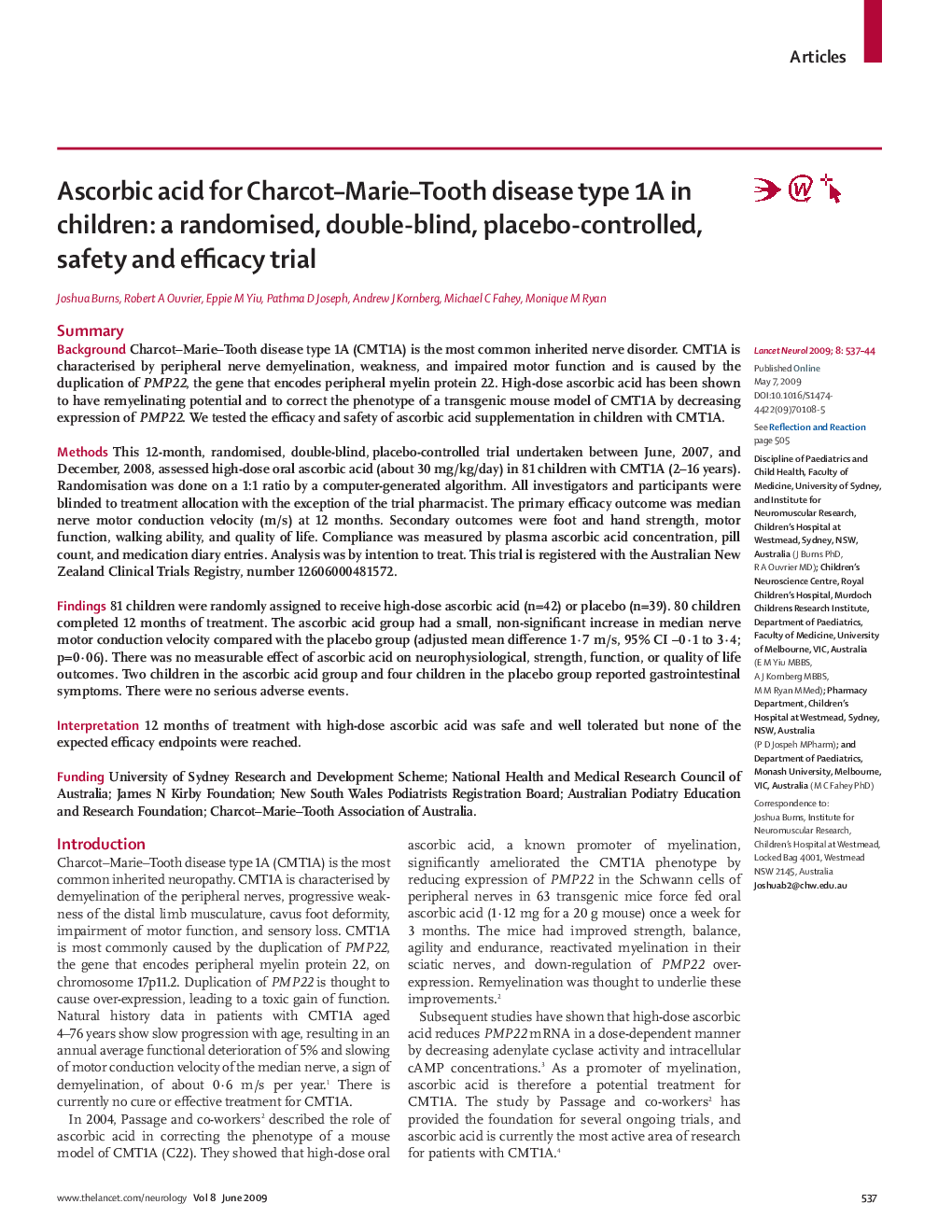| Article ID | Journal | Published Year | Pages | File Type |
|---|---|---|---|---|
| 3067045 | The Lancet Neurology | 2009 | 8 Pages |
SummaryBackgroundCharcot–Marie–Tooth disease type 1A (CMT1A) is the most common inherited nerve disorder. CMT1A is characterised by peripheral nerve demyelination, weakness, and impaired motor function and is caused by the duplication of PMP22, the gene that encodes peripheral myelin protein 22. High-dose ascorbic acid has been shown to have remyelinating potential and to correct the phenotype of a transgenic mouse model of CMT1A by decreasing expression of PMP22. We tested the efficacy and safety of ascorbic acid supplementation in children with CMT1A.MethodsThis 12-month, randomised, double-blind, placebo-controlled trial undertaken between June, 2007, and December, 2008, assessed high-dose oral ascorbic acid (about 30 mg/kg/day) in 81 children with CMT1A (2–16 years). Randomisation was done on a 1:1 ratio by a computer-generated algorithm. All investigators and participants were blinded to treatment allocation with the exception of the trial pharmacist. The primary efficacy outcome was median nerve motor conduction velocity (m/s) at 12 months. Secondary outcomes were foot and hand strength, motor function, walking ability, and quality of life. Compliance was measured by plasma ascorbic acid concentration, pill count, and medication diary entries. Analysis was by intention to treat. This trial is registered with the Australian New Zealand Clinical Trials Registry, number 12606000481572.Findings81 children were randomly assigned to receive high-dose ascorbic acid (n=42) or placebo (n=39). 80 children completed 12 months of treatment. The ascorbic acid group had a small, non-significant increase in median nerve motor conduction velocity compared with the placebo group (adjusted mean difference 1·7 m/s, 95% CI −0·1 to 3·4; p=0·06). There was no measurable effect of ascorbic acid on neurophysiological, strength, function, or quality of life outcomes. Two children in the ascorbic acid group and four children in the placebo group reported gastrointestinal symptoms. There were no serious adverse events.Interpretation12 months of treatment with high-dose ascorbic acid was safe and well tolerated but none of the expected efficacy endpoints were reached.FundingUniversity of Sydney Research and Development Scheme; National Health and Medical Research Council of Australia; James N Kirby Foundation; New South Wales Podiatrists Registration Board; Australian Podiatry Education and Research Foundation; Charcot–Marie–Tooth Association of Australia.
